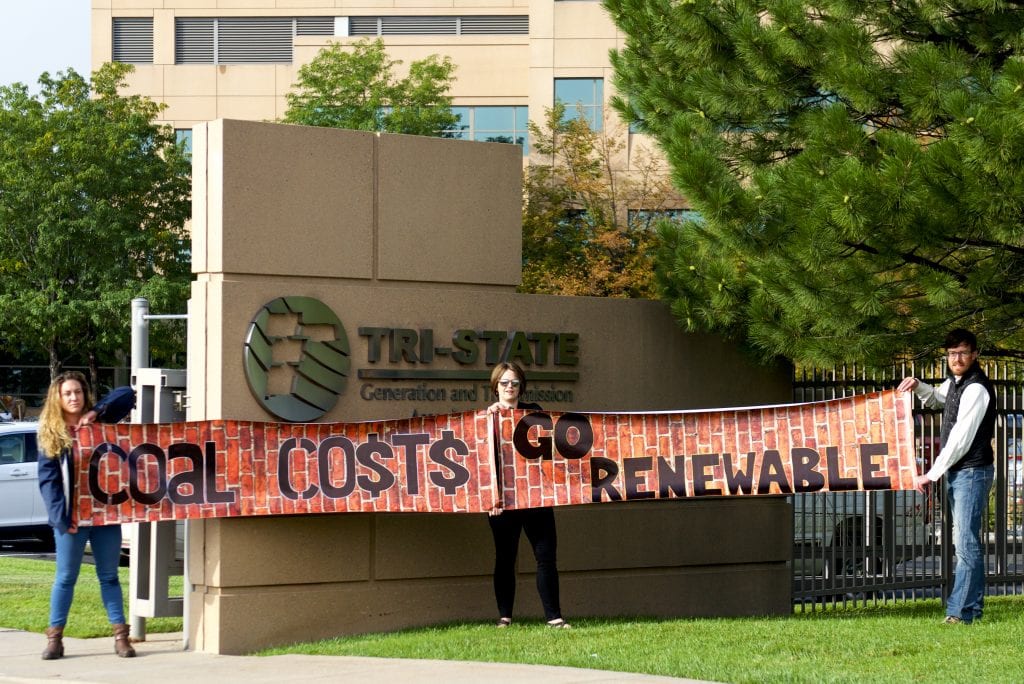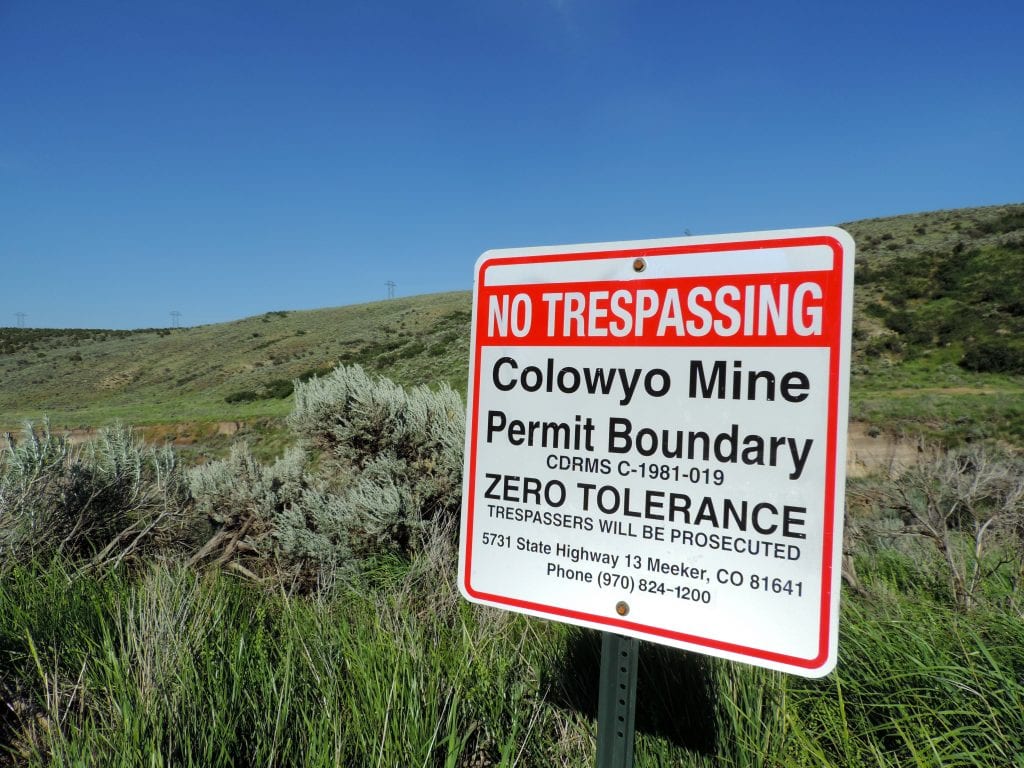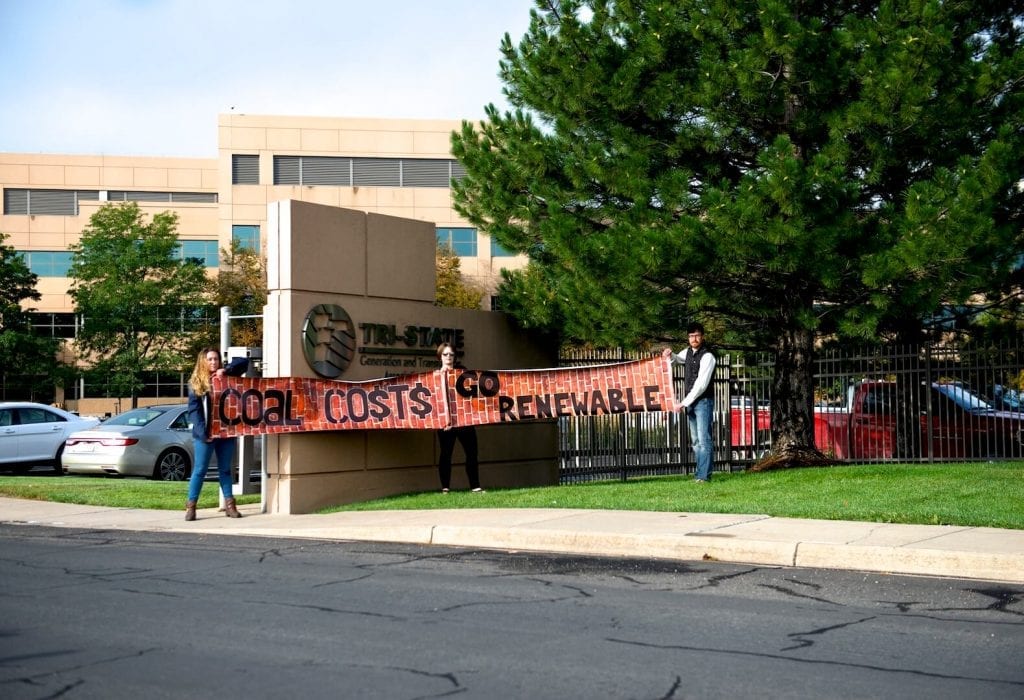
As Tri-State Generation and Transmission Association’s Board of Directors meet today and tomorrow at the company’s headquarters in the Denver metro area, WildEarth Guardians has called on four state utility commissions to launch investigations into the utility’s costly reliance on coal and whether its rates are just.
The complaints, filed with utility commissions in Colorado, Nebraska, New Mexico, and Wyoming, come on the heels of mounting evidence showing that a move away from coal to renewable energy could reduce rates and save Tri-State’s members millions.
Tri-State provides wholesale power and transmission services to 43 member rural electric cooperatives in Colorado, Nebraska, New Mexico, and Wyoming. In total, these members serve nearly a million customers, mainly in rural communities.
Most of the company’s electricity is generated by coal-fired power plants in Colorado, Arizona, New Mexico, and Wyoming. The company also has ownership in five coal mines, including the Colowyo mine in northwest Colorado and the Dry Fork mine in northeast Wyoming.

Reports have found the costs of maintaining Tri-State’s existing coal-fired power plants and mines are more expensive than developing or purchasing new renewable energy.
Tri-State has come under fire by several members for its costly reliance on coal. All of the company’s members are locked into long-term contracts that require them to purchase at least 95% of their power from Tri-State, regardless of the cost.
Many members are eyeing local renewable energy development as a means to become more independent and obtain more affordable, cleaner, and economically lucrative electricity, but are constrained by Tri-State’s contracts.
In 2016, former member Kit Carson Electric Cooperative in northern New Mexico bought out its contract with Tri-State.
Several remaining members, including the Delta Montrose Electric Association in western Colorado, the La Plata Electric Association in southwest Colorado, and others are considering leaving Tri-State as well.
As Tri-State faces member defection, other members face the prospect of higher rates and higher financial burdens, which could ultimately be a recipe for credit downgrades and potentially bankruptcy.
WildEarth Guardians’ complaints are calling on utility commissions to exert their regulatory authority to investigate whether Tri-State’s wholesale rates and other charges are “just and reasonable.”
In Colorado, WildEarth Guardians called on the Public Utilities Commission to begin regulating Tri-State and the company’s rates as required by state law. While the company has asserted it’s not subject to regulation by the Colorado Public Utilities Commission, state law says otherwise.
The complaints also call on utility commissions to investigate whether Tri-State’s rates are reasonable in light of the company’s failure to account for coal mine reclamation liabilities, in light of an exorbitant renewable energy ad campaign, and in light of the company’s restrictive contracts with its members.
Although Tri-State has committed to retiring some of its coal-fired power generation over the next several years, the company remains heavily dependent on coal and will be for the foreseeable future.
Today and tomorrow, Tri-State’s Board of Directors are meeting at the company’s headquarters in the Denver metro area. WildEarth Guardians hope is that the Board begins to make more aggressive moves away from coal and acknowledges the need to save its members money and promote local renewable energy development.
In the meantime, if you’re a member of a rural electric cooperative served by Tri-State, you can also weigh in. Sign our petition today calling on the company to ditch coal and go renewable!
